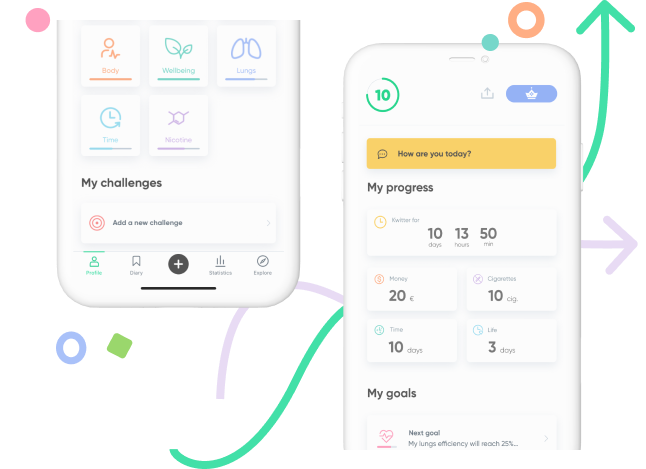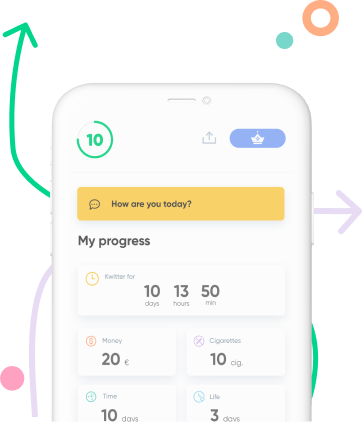April 2, 2019
Tips
Cigarette and depression — is there really a link?
Many people wonder if there is really a link between smoking and depression. The situation is nuanced, and there are tips for dealing with the blues related to smoking cessation.
Quitting smoking can be a real challenge that results in multiple reactions of the body and mind. This leads some to associate smoking cessation with depression. In fact, nothing could be further from the truth, and a clear distinction must be made between depression, feeling down, anxiety and irritability. In the long run, saying goodbye to cigarettes is even beneficial to your mood. In this article, Kwit discusses the link between smoking and depression and gives you different ways to cope with the blues related to quitting smoking.
Do not confuse depression with feeling down
Admittedly, feeling down is a frequent symptom of withdrawal. Everyone will say it in their own words: “Since I quit smoking, I've been feeling down, I've got the blues, it's loose”. In fact, the nicotine contained in cigarettes activates the dopamine, serotonin and noradrenaline circuits, hormones associated with pleasure and happiness. Smoking therefore brings a state of relative well-being to many smokers, and saying goodbye to cigarettes makes this occasional feeling disappear, which can lead to relapse. However, this drop in morale, this temporary feeling down should not be confused with real depression.
But is there really a link between smoking and depression? This is a debatable issue that deserves to be clarified.
What is the link between smoking and depression?
Does smoking lead to depression, or is it depression that leads to smoking? What do scientific studies say?
“Studies have been conducted with adolescents, showing that those with depressive pathologies are twice as likely to be addicted to nicotine, all other things being equal, such as social and family environment:
Thus, the facts show that in the long term, adolescent smokers are also those who report more depressive episodes.
This is especially true for adolescents who report that tobacco has an effect on their mood. In fact, this interrelation between tobacco and depression continues beyond adolescence and several surveys (Arch Gen Psychiatry, 1993 & 1996) have established the number of depressive states twice as high among smokers.”
This tends to suggest that it’s not quitting that leads to depression, but rather that it’s depression that leads to smoking. In addition, other studies suggest that after smoking cessation, ex-smokers are generally less depressed, less anxious, and their mood and quality of life have improved.
Thus, people who report feeling depressed during smoking cessation either confuse depression with feeling down, or they have a previous, latent state of depression that is mistakenly attributed to smoking cessation and that was masked by cigarettes.

Tips for people that have “depression” or “feeling depressed” to successfully stop smoking
It’s important to note that if you are prone to chronic depression, it’s best to treat it, as much as possible, before going through withdrawal. This will further increase your chances of success.
There are several methods you can use to successfully quit smoking while you are feeling depressed:
Playing sports to take your mind off things and challenge yourself.
Do something different, such as using the money you've saved to do something you've wanted to do for a long time.
Practice relaxation, meditation or yoga to relax and resist stress.
You can also read this article where you will find some additional tips.
In any case, it’s important to identify what motivates you to quit smoking, and that you always keep these reasons in mind. They will help you through the difficult times.
Your smoking cessation is also the ideal time to change your habits and especially to stay or learn to be positive. Indeed, positive thinking will help you get through this ordeal by putting aside your depression and blues.
Remember that depressive symptoms usually disappear in less than two months. Don't hesitate to download Kwit, our application to help you quit smoking, whose watchword is benevolence. The application helps you follow your progress from the moment you decide to quit smoking, and encourages you with personalized messages. You won't get depressed with Kwit!
Finally, it’s important to add that if the feeling of depression persists, consulting a specialist may be a solution to consider.
For more advice, follow us on Instagram Twitter and LinkedIn!




